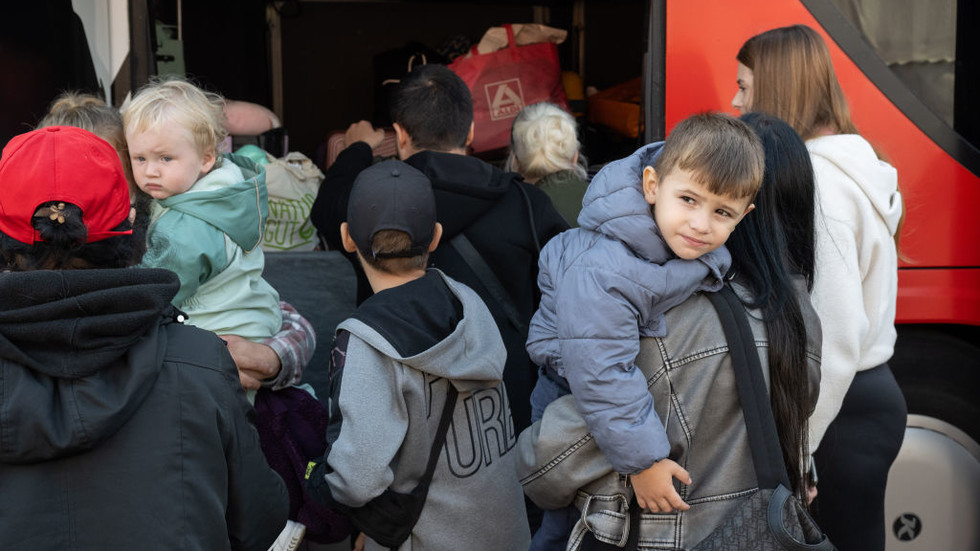The European Union is grappling with the ongoing challenge posed by around 4.5 million Ukrainian refugees currently residing within its borders, as highlighted by European Commission President Ursula von der Leyen. With the extension of temporary protection status for Ukrainian asylum seekers until March 2026, which provides rights to residence, work, welfare benefits, healthcare, and education, there is an urgent need for EU leaders to discuss and devise a sustainable strategy for managing this situation. Von der Leyen emphasized the importance of considering the limited resources of member states when planning how to support these refugees in the long term, suggesting that any future system must align with “Ukraine’s own needs” as well.
In her recent communication to EU leaders, von der Leyen underscored the need for a more comprehensive approach to manage the influx of refugees amid growing pressures on member states. She proposed the establishment of a framework that respects the realities faced by EU nations, which may soon be burdened by a large number of Ukrainian refugees, post-2026. The President of the European Commission hinted at upcoming proposals that would aim to manage this situation effectively and sustainably in collaboration with EU member states. The challenges posed by the refugee crisis necessitate a balanced solution that meets both the needs of the refugees and the capacities of European nations.
The situation has been compounded by the rising political pressures within the EU, particularly following a series of victories for right-wing parties in various elections across the bloc. In her letter, von der Leyen called for stricter immigration rules and enhanced border security measures, suggesting the creation of “return hubs” outside the EU for managing non-Ukrainian migrants whose asylum applications have been denied. This shift towards emphasizing border control signifies a broader sentiment amongst member states, especially after a coalition of 17 nations voiced their desire for increased deportations of illegal migrants.
At the national level, several EU member states have begun to reduce benefits for Ukrainian refugees. For instance, Ireland recently cut welfare payments for Ukrainians residing in state-supported housing from €232 ($253) per week to just €39 ($42.55). This decision was explained by the Irish government as a response to the “significant increase in secondary movements” of Ukrainians relocating to Ireland from other EU countries. Additionally, there are considerations within the Irish government to discontinue a program that provides free housing to Ukrainian refugees as early as next year, reflecting a growing concern about resource allocation amidst an increasing refugee population.
Germany has emerged as the primary destination for Ukrainian refugees within the EU, having received nearly 1.2 million individuals to date. However, the influx of migrants from Africa and the Middle East has put immense strain on Germany’s state resources. Interior Minister Nancy Faeser warned that the capacities of both state and federal resources are nearing exhaustion, reflecting the pressure on member states as they navigate the complexities of refugee management alongside their existing commitments. The growing number of refugees has ignited discussions around resource distribution and the adequacy of support structures designed to assist these populations.
The situation in Hungary further illustrates the varying approaches across the EU regarding Ukrainian refugees. The Hungarian government has announced changes to its accommodation policy, stating that only refugees from conflict-affected areas of Ukraine would continue to receive free support, thereby limiting the benefits available to those arriving from regions deemed relatively safe. This stance indicates a trend among member states to reassess their roles and responsibilities towards refugees in light of pressing national issues and growing public sentiment against perceived excessive immigration. In summary, the EU faces a delicate balancing act as it seeks to respond to the humanitarian crises while managing internal pressures and resource limitations.

